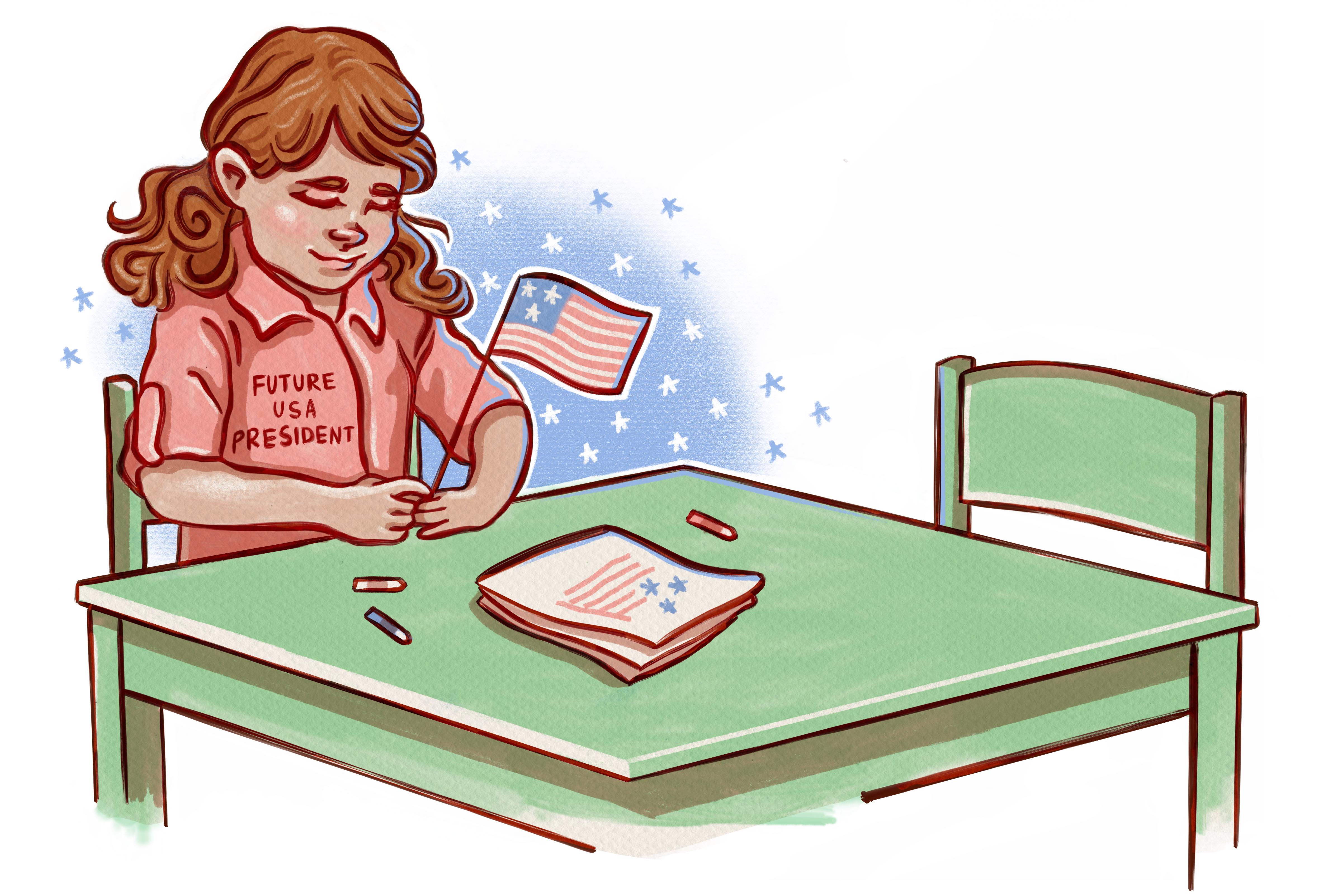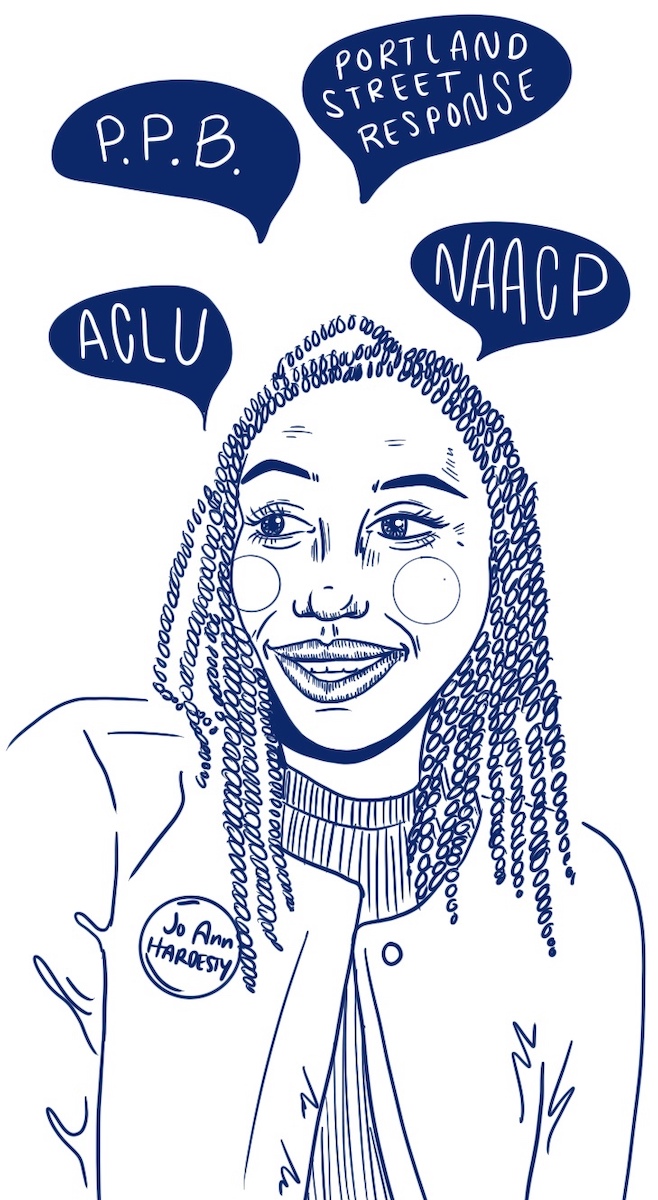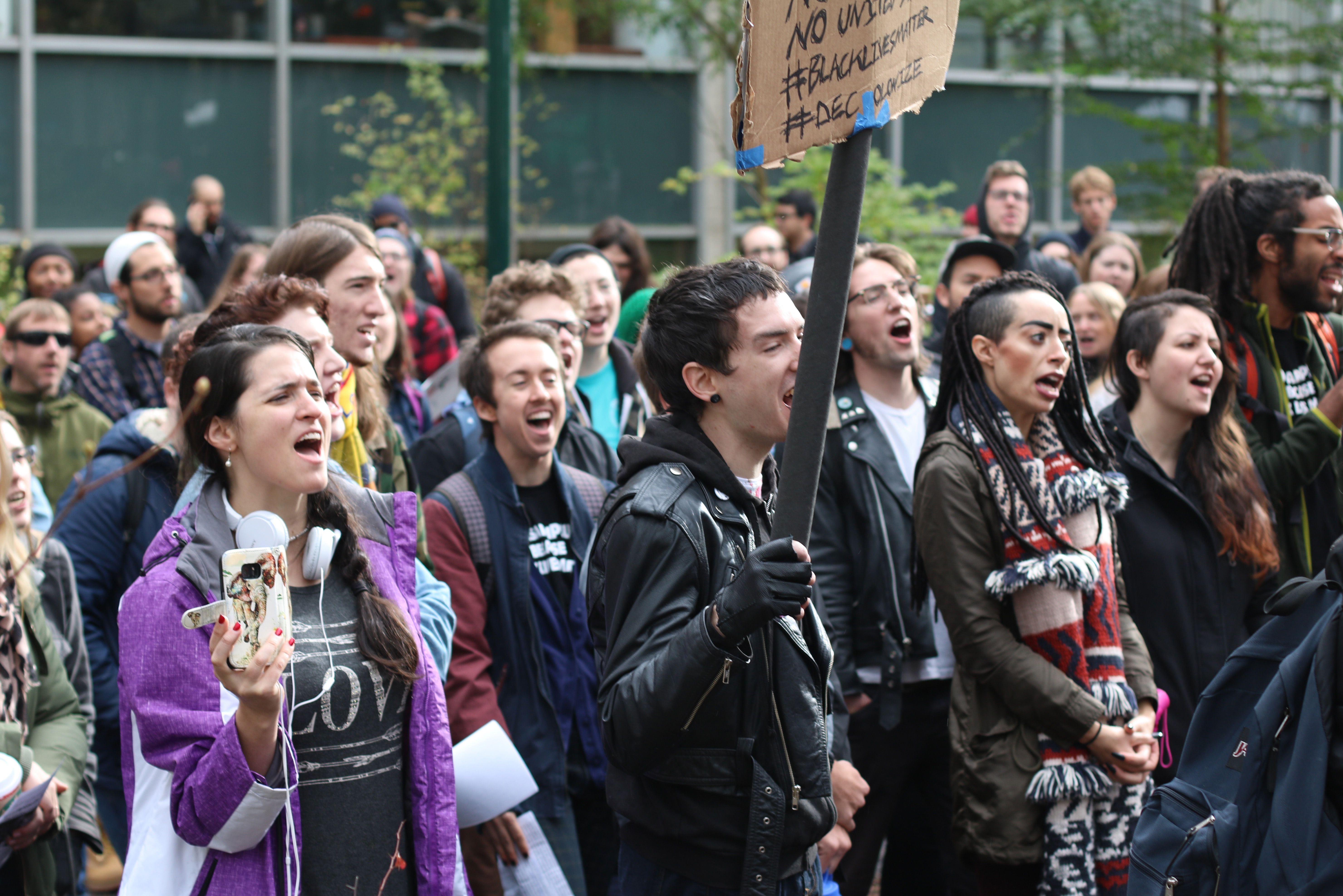As the dumpster fire that is the year 2020 blazes on, and the pandemic, politics and protests assert themselves as reigning topics of conversation, it’s becoming more apparent that things may never return to normal. This divided nation will require new ideas and minds to create the propulsion needed to move forward and leave this year behind, and for that we must look to those who hold our future in their small, grubby hands: kids.
This is not to say adults should be abdicating their responsibility as citizens of this country and dumping everything on subsequent generations—that would be irresponsible, ahem, boomers. But what if discussing politics wasn’t considered taboo or impolite? Removing the stigma that accompanies political discourse is critical if we want to get anywhere in this country—which is why we should abolish the kids’ table. What if kids don’t need us to water things down for them? What if they have normal-sized brains and an impressive hunger to learn and understand things on a deeper level? Only, adults keep denying them because they’re stuck at the kids table. We shoo them away when they linger too long around the grown-ups, or gently shush them when they ask too many questions, but they are always listening. Hearing what we say, watching how we react to what other people say, learning.
Last week I found myself needing to go downtown for an errand. As my daughters and I made our way through Chinatown on the Trimet Green Line, it wasn’t the boarded-up businesses or graffiti that caught their attention; it was the tents. One of my daughters peered out the window and shook her head. “Why doesn’t the mayor help these people? Isn’t that his job?” It was completely unprompted, but we’ve had this conversation before. My partner and I have had many talks about the houseless situation in Portland, and yes, Mayor Ted Wheeler’s responses to it, conversations that our daughters have overheard and even interjected themselves into. Years ago, I made the decision that sheltering my daughters from the world was not going to do them any favors, but it wasn’t until recently that I began to have more focused conversations with them. I invited my kids to join me at the grown-up table.
It’s no secret that children are curious, and while the unrelenting barrage of “why” questions are tedious in the earlier years, over time, they’ll begin to ask bigger questions. When my girls started making more complex inquiries, I’d fan the flames a bit. We don’t have to go to great lengths to give them a heavily regimented lesson on everything, because life provides ample opportunities to have discussions. Something as simple as going for a walk through the neighborhood, riding the bus or train, making a visit downtown or going to a farmers market can spark a discussion. Indulge in the questioning, take their lead on what’s piquing their interests and start a conversation about it. Why are there tents everywhere? Easy segue into a conversation about houselessness. One question will lead to two more, and so on. They want to learn, we only need to be willing to learn with them. I certainly don’t know how to answer all of the questions my daughters ask me. This is just as much a call for us adults to revive our curiosity as it is a call for us to engage our children and destroy the taboo tethered to political discourse.
Right now, it’s easy enough. If you know any 6-year olds, then you know that they still look to us adults for the answers. One day they’ll forge their own opinions on things, and I don’t doubt there will come a day when my daughters will push back against me and my own aging ideals. As the world continues to grow and change, we must all rise to meet those changes with a willingness to learn and adapt. We’ll need new ideas, like Gen Z K-pop fans buying up Trump rally tickets with no intentions of going. Brilliant. The kids are alright—they don’t need us to save or protect them. All they need is for the grown-ups to shut up and listen, something that has been denied them for far too long, simply because they are young.






